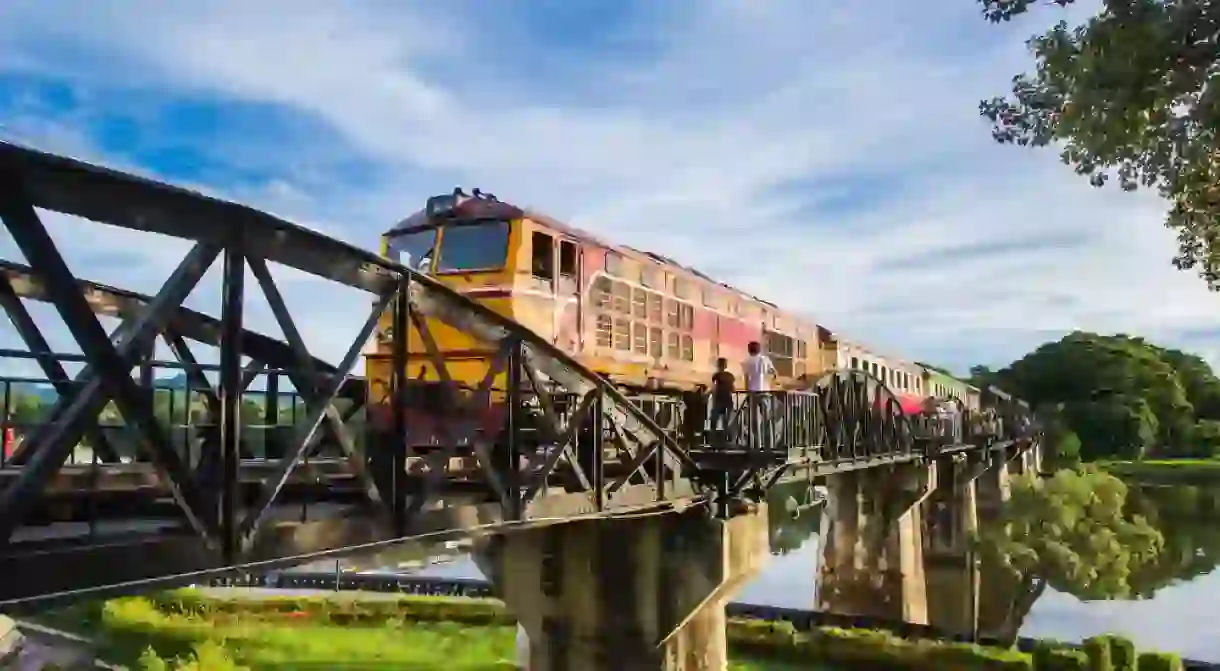Thailand’s 10 Most Iconic Landmarks

Thailand has plenty of fascinating landmarks, including traditional and modern examples of architecture, unique natural features and jaw-droppingly beautiful landscapes.
Grand Palace and Wat Phra Kaew
Buddhist Temple

Wat Arun
Buddhist Temple

Wat Phra That Doi Suthep
Architectural Landmark, Buddhist Temple

One of Chiang Mai’s major temples, Wat Pratat Doi Suthep has a glittering golden pagoda surrounded by beautiful pavilions and buildings. The pagoda houses a relic of the Lord Buddha. Visitors must climb more than 300 steps to reach the hill-top temple, with colourful naga statues slithering down the staircase and great views across the nearby area. The outer terrace boasts small shrines, trees, flowers and statues, while the inner terrace is where you’ll find the main tiered pagoda as well as Buddha statues in various poses.
Wat Rong Khun
Architectural Landmark

Although Wat Rong Khun is a fairly new temple, it is quickly establishing itself as one of Thailand’s must-sees. Found in Chiang Rai and also known as the White Temple, it is striking for its gleaming white designs and fairytale-like appearance. There is controversial artwork within the main temple building, reached by traversing a walkway with ghostly limbs reaching up from underneath.
Bridge over the River Kwai
Architectural Landmark
A symbol of the damage suffered by Thailand during wartime, the black metal Bridge Over the River Kwai is in Kanchanaburi province. Part of the proposed Thai-Burma Railway Line, also known as the Death Railway, it was part of Japan’s ambitious scheme to connect the neighbouring countries by railroad. Built primarily using forced labour, many people lost their lives building the railway and the bridge.
State Tower
Building

Ko Ta Pu
Natural Feature, Architectural Landmark

You might not know the name of Ko Ta Pu, but you will almost certainly recognise pictures of this iconic natural landmark. Located in the sublime and scenic Phang Nga Bay, the spire-like karst rises up from shimmering waters with other greenery-clad limestone rocks in the background. Located just off the coast of the small island of Khao Phing Kan, together they are commonly referred to as James Bond Island after being featured in the classic movie The Man with the Golden Gun.
Maya Bay
Natural Feature

Haew Su Wat Waterfall
Architectural Landmark, Natural Feature
Damnoen Saduak Floating Market
Market














